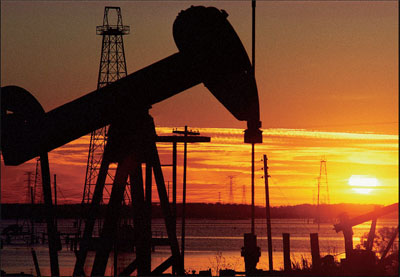
South Africa Signs Major Energy Agreement with Democratic Republic of Congo
Nov 16, 2011 - John Daly - oilprice.com

Africa has for the last couple of decades found itself between a rock and a hard place on energy issues, seeing foreigners race in to exploit hydrocarbon reserves (Nigeria, Angola, Equatorial Guinea, Sudan, etc.) while soaring population rates and a lack of infrastructure investment have left many nation’s populations bereft of reliable and inexpensive energy resources.
One of Africa’s greatest potential energy assets is the vast hydropower of its rivers, which have largely been underutilized up to now. South Africa and the Democratic Republic of Congo this weekend will sign a major hydropower project which officials from both South Africa and the Democratic Republic of Congo say will benefit both nations.
South African President Jacob Zuma, who will visit the Democratic Republic of Congo on 12 November, is expected to oversee the signing of the memorandum of understanding with Democratic Republic of Congo President Joseph Kabila.
If all goes well, the agreement will revive the Grand Inga Dam 39,000 megawatt hydro power project on the Congo River, whose estimated cost of $8-$10 billion has left project backers scrambling for funds.
If built, the Gran Inga Dam at Inga Falls on the Congo River will be the fourth and largest hydroelectric project on the river, containing 52 turbines each capable of producing 650 megawatts of electricity apiece, a total larger than China’s renowned Three Gorges Dam on the Yangtse, currently the world’s largest hydroelectric facility with a generational output of 20,300 megawatts. The capacity of the Gran Inga Dam is equivalent to the total installed generation capacity in South Africa, currently Africa’s biggest producer of electricity.
The agreement followed a failed 2009 project between the Democratic Republic of Congo, Angola, South Africa, Namibia and Botswana to invest $5.2 billion in the Inga 35,000 megawatt hydropower project.
Zuma’s office issued a press release commenting, "This will enhance energy access to clean and efficient energy across the continent and contribute significantly towards a low carbon economy and economic development. This MOU further strengthens the existing cordial relationship between the two countries. President Zuma has directed that the process of negotiations for a Treaty to give effect to the MoU must commence immediately, and be completed within the next six months. The proposed Treaty will create an enabling environment and necessary framework for the implementation of the project, including defined milestones for the execution of the Grand Inga Project."
Cost concerns have been rising about the Inga Project – four months ago, the African Development Bank said that plans to develop the project may be too risky because of costs and time. In 2010 the Democratic Republic of Congo rejected a proposal by the Western Power Corridor (Westcor), a joint venture between five southern African governments and power utilities, that would have, if implemented, led to the Democratic Republic of Congo building facilities to allow the nation to export of up to 3,000 megawatts of electricity annually to South Africa and another 1,000 megawatts to neighboring countries by 2015. The potential is there, as the Democratic Republic of Congo’s massive riverine network has an estimated hydro-power potential of 100,000 megawatts according to the World Bank but which is severely underutilized at present, with only nine percent of the population and 31 percent of the country’s urban areas currently having access to electricity.
Prolonged power cuts regularly plunge the capital Kinshasa into complete darkness. The Democratic Republic of Congo’s sole power utility, Societe Nationale d'Electricity, or SNEL blames the crisis on "obsolete installations for both exploitation and distribution, and the absence of the second power line between Inga and Kinshasa."
Aside from the power benefits the Grand Inga Project would also assist Congolese environmental efforts to protect the country’s woodlands, increasingly at risk from the population chopping them down for wood for cooking and heating. According to the United Nation's Environment Program (UNEP), the Congolese cut down 988,000 acres of forest every year just for their heating and lighting needs.
Democratic Republic of Congo’s Environment Minister Jose Endundo neatly summed up the nation’s dilemma, observing, "Conservation is directly linked to development, because if there's no energy how can you stop the people from going and chopping down the forest for firewood? It's impossible."
So, all are agreed that the Grand Inga Project has merit.
The only remaining issue then, is financing it.
As the Democratic Republic of Congo holds presidential elections later this month and incumbent President Joseph Kabila, who will be running for a second term considers how best to win votes, he might remember that constituents dining and voting by candlelight are perhaps less than enamored of supporting the status quo for another five years and might be enamored of choosing another of the other 10 candidates registered for the contest.

|



